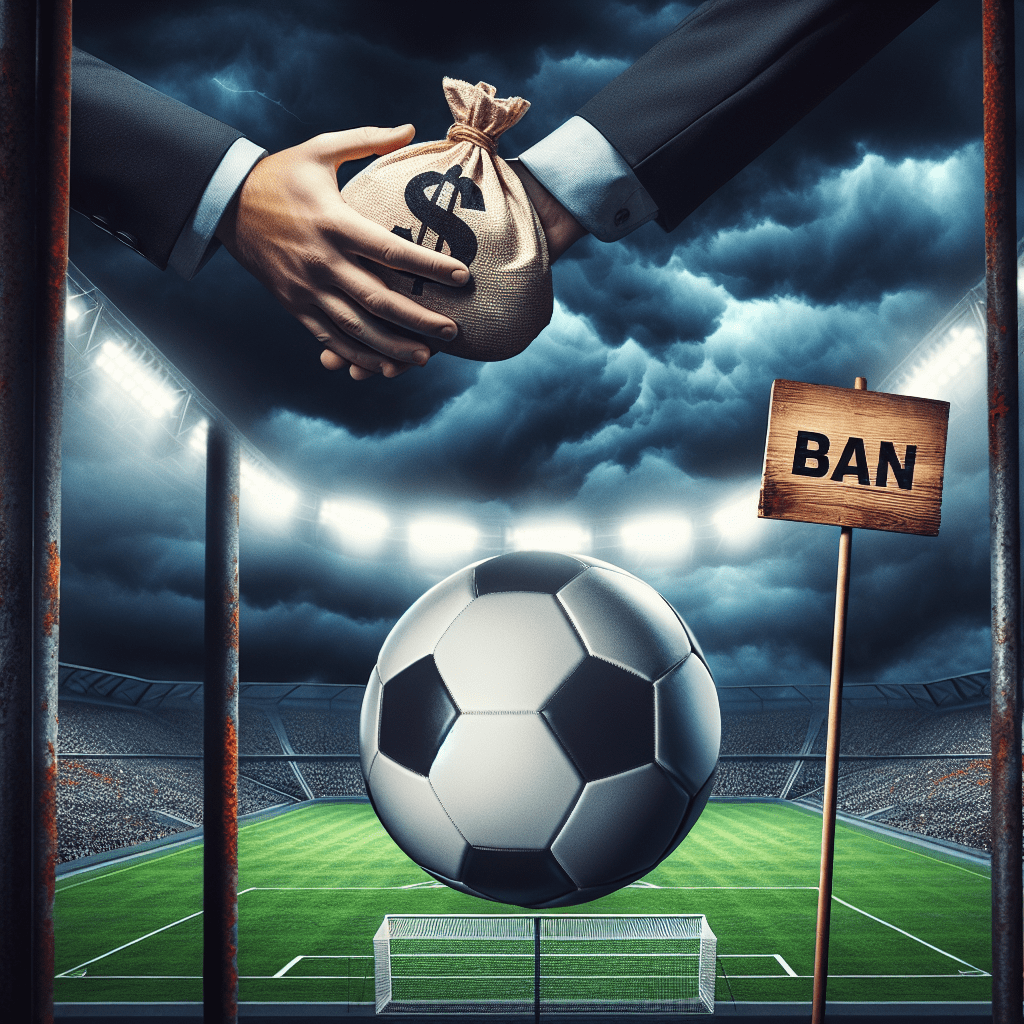[ad_1]
From Bribes to Bans: An Overview of Notorious Soccer Match-Fixing Scandals
Soccer, also known as football in many parts of the world, is a sport that brings together nations, communities, and fans in a shared passion unlike any other. The beautiful game, as it is affectionately known, is celebrated for its unpredictability, thrilling moments, and its ability to unite people from different walks of life. However, this globally beloved sport has also been marred by instances of corruption, with numerous match-fixing scandals shaking the foundations of trust and integrity on which the game prides itself.
Match-fixing in soccer involves manipulating the outcome of a game for financial gain or to benefit certain teams, potentially involving players, referees, and other officials. Over the years, these scandals have ranged from local leagues to prestigious international tournaments, involving some of the most well-known teams and players. This overview delves into some of the most notorious soccer match-fixing controversies, exploring their impact on the sport and how governing bodies have responded.
The 2006 Italian Football Scandal (“Calciopoli”)
Perhaps one of the most infamous match-fixing scandals in football history, Calciopoli implicated several top Italian clubs, including Juventus, AC Milan, Fiorentina, Lazio, and Reggina. Investigations revealed that these clubs had been involved in selecting favorable referees for their matches through a complex network of contacts with high-ranking football officials. The scandal resulted in Juventus being stripped of their 2004-2005 Serie A title, relegated to Serie B for the first time in their history, and starting the next season with a points deduction. Other clubs received points penalties, and several officials were banned from the sport.
The 2011 Turkish Football Match-Fixing Scandal
In 2011, the Turkish football league was rocked by allegations of match-fixing involving top clubs such as Fenerbahçe, Beşiktaş, and Trabzonspor. The scandal emerged after police conducted wiretaps and surveillance, uncovering evidence of manipulation in 19 matches from the 2010-2011 season. The case led to numerous arrests and trials, with Fenerbahçe being banned from European competitions for two seasons. The incident severely damaged the reputation of Turkish football, leading to calls for widespread reforms and stricter regulations.
Singapore’s Global Match-Fixing Syndicate
Wilson Raj Perumal, a Singaporean national, became synonymous with global soccer match-fixing after his arrest and conviction in multiple countries. Perumal was linked to a widespread network that manipulated games across the world, from Finland to South Africa, often in lower-tier leagues where manipulation was easier to conceal. His actions, reportedly part of a larger Singapore-based syndicate, highlighted the international nature of match-fixing conspiracies, leading to increased cooperation among global law enforcement and sporting organizations to tackle the issue.
The 2013 Europol Investigation
In 2013, Europol announced the results of an extensive investigation into match-fixing in soccer, revealing that over 680 matches across the world were suspected to have been fixed, including World Cup qualifiers and European Championship matches, as well as games in several top European leagues. The investigation demonstrated the complex web of connections among criminals, corrupt players, and officials across continents, showcasing the significant challenge that soccer authorities face in combating match-fixing.
Responding to the Scourge
In response to the widespread nature of match-fixing, soccer’s governing bodies, including FIFA and UEFA, have implemented a variety of measures aimed at restoring the integrity of the game. These include the establishment of dedicated anti-corruption units, such as FIFA’s Early Warning System and UEFA’s Integrity Unit, and partnerships with organizations like Interpol to improve detection and enforcement. Moreover, the introduction of stricter penalties, ranging from lifetime bans for individuals found guilty of match-fixing to heavy fines and points deductions for clubs, has been a key part of the strategy to deter fraudulent activities.
FAQs
Q: What is match-fixing in soccer?
A: Match-fixing in soccer involves manipulating the outcome of a match for financial gain or other benefits, potentially involving players, referees, and other officials.
Q: Why is match-fixing a problem in soccer?
A: Match-fixing undermines the integrity and unpredictability of soccer, which are core to the sport’s appeal. It erodes trust among fans, players, and officials, and damages the reputation of leagues and competitions.
Q: How do governing bodies detect match-fixing?
A: Soccer’s governing bodies use a combination of monitoring betting patterns, establishing whistleblower hotlines, and working with law enforcement agencies to detect and investigate match-fixing.
Q: What penalties can be imposed for match-fixing?
A: Penalties for individuals involved in match-fixing can include lifetime bans from the sport, while clubs can face heavy fines, points deductions, and exclusion from competitions.
Q: How can fans help combat match-fixing?
A: Fans can help by reporting any suspicious activities or behaviors they observe in relation to match-fixing to authorities, such as unusual betting patterns or unexpected performance in games.
The shadows cast by match-fixing scandals have undoubtedly tarnished the image of soccer worldwide. Nonetheless, the sport’s enduring popularity and global reach also provide a strong platform for reform and renewal. Through vigilant efforts by governing bodies, players, officials, and fans, soccer can hope to overcome the challenges posed by corruption, preserving the integrity and passion that make it the world’s most beloved game.
[ad_2]






